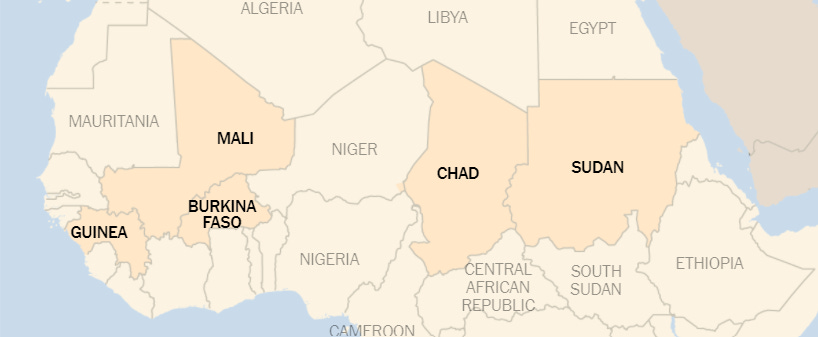Earthling: The opening ceremony of Cold War II
Plus: Coup epidemic, covid trash, Houthis declared victors, etc.
Who says China and the US can’t work together? They seem to be collaborating on a kind of international Build Back Better initiative: the US reduces countries to ruin, and China rebuilds them. Iraq, still recovering from the 2003 US invasion and its destructive aftermath, received $10.5 billion last year as part of China’s Belt and Road Initiative, making it the top BRI recipient of 2021. Iran, which has been devastated by US sanctions, joined the Chinese infrastructure program in March. Syria, which has endured both US sanctions and a civil war intensified by US-supplied weapons, joined last month. If Cold War II is going to be in part a struggle for the world’s hearts and minds, America may want to rethink its strategy in the Middle East and elsewhere. Speaking of Cold War II:
The first day of the Beijing Winter Olympics showcased, among other things, how US policies viewed as hostile by China and Russia are driving the two countries together. In what the New York Times called “a highly choreographed display of solidarity,” Vladimir Putin and Xi Jinping met and issued a joint statement in which they, in effect, embraced one another’s grievances against the US: the continued expansion of NATO, America’s support of Hong Kong protestors, and its seeming support for an eternally independent Taiwan.
Tens of thousands of tons of medical waste have piled up as a result of the COVID-19 pandemic, according to the World Health Organization. The trash ranges from plastic-encased Covid test kits to vaccine syringes, and not all of it was necessary; mistaken fears of infection via surface contact led to the overuse of protective gear, especially gloves.
What UN Secretary General Antonio Guterres has called “an epidemic of coup d’états” continues in Africa. Burkina Faso, where the military deposed a democratically elected president two weeks ago, is the fifth African country to see a military takeover within the last 18 months, following Mali, Chad, Guinea, and Sudan. A New York Times piece that searched for causes came up with no grand unified theory (and, oddly, doesn’t note that all these coups took place during the Covid pandemic) but cites poor governance and Islamist insurgencies as recurring themes. All told, 114 million people in these five countries have fallen under military rule.





